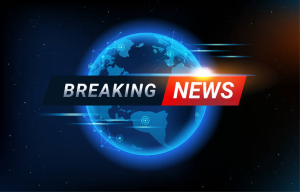Get ready for inflation and interest rates to rise again

-
President-elect Donald Trump said he would implement tariffs on imported goods.
-
Economists said the proposals could boost inflation and raise prices for consumers.
-
The Federal Reserve would likely respond to inflation by raising interest rates to curb demand.
One of the first policies President-elect Donald Trump is expected to enact after being sworn into office is imposing taxes on imported goods.
Many economists say these tariffs, as well as some of his other proposals, could kick-start another bout of inflation and interest-rate hikes.
Trump has said that his proposals would not impact US prices. "I am going to put tariffs on other countries coming into our country, and that has nothing to do with taxes to us. That is a tax on another country," he said in an August speech.
Some experts have argued otherwise. Economists and investors project that taxes imposed on imports will be passed on to American consumers in the form of higher prices. In an economic chain reaction, households would then pay higher interest rates on borrowing of all kinds as the Fed moves to tame that newly rekindled inflation.
AfriPrime App link: FREE to download...
https://www.amazon.com/Africircle-AfriPrime/dp/B0D2M3F2JT
Ramping up tariffs from Trump's first term is expected to eat into Americans' wallets
On the campaign trail, one of Trump's cornerstone proposals was a 60% tariff on goods imported from China and a 10% to 20% tariff on imports from other countries.
The US Census Bureau reported that broad tariffs would likely affect the prices of automobiles, drugs for human and veterinary use, food and beverages, furniture, and household appliances.
Trump could announce these changes as soon as he takes office because they would not require congressional approval, but because implementation could take time, consumers would not see higher prices immediately.
An analysis from the nonpartisan Peterson Institute examined Trump's proposed 60% tariff on goods imported from China and estimated that it would boost inflation by 0.4 percentage points in 2025. The estimate does not include Trump's proposal for a 10% to 20% tariff on other imports.
Markets are also expecting higher inflation under Trump; bond yields surged following Trump's victory. That led to the 30-year fixed mortgage rate rising, meaning homebuyers are on track to see higher interest rates on loans.
An analysis by the nonpartisan Tax Policy Center found that Trump's policies would decrease posttax incomes by an average of $1,800 in 2025. A separate analysis by the left-leaning Center for American Progress said that his tariff plans could cost the typical American household an extra $1,500 a year.
Going back to Trump's first term, the Tax Foundation estimated that Trump's tariffs amounted to additional costs for Americans, functioning as a nearly $80 billion tax increase on Americans buying Chinese imports.
But there's a catch. The tariffs Trump enacted in his first term did not result in a significant inflation increase. The difference this time around — and the reason why inflation forecasts are more stark — is how much deeper and more wide-reaching Trump's tariff proposals are for not just China but the rest of the world.
Trump's win is also expected to influence the Federal Reserve's upcoming decisions on interest rates. While it's too soon for the Fed to make any adjustments since Trump has not yet implemented any tariffs, members of the Federal Open Market Committee will likely begin discussing how Trump's future economic policies could affect consumers — including whether the central bank would need to hike interest rates in the future in response to inflationary pressure.
The Fed is expected to cut interest rates by 25 basis points on Thursday, and Fed chair Jerome Powell will likely offer some insight into the Fed's direction following Trump's victory.
However, the future of the Federal Reserve is uncertain under Trump. The president-elect has previously suggested that he would like to have a say over interest-rate decisions, something presidents do not currently have. This raises the question of whether the central bank would continue to remain politically independent.
Americans will likely learn more about what to expect from Trump as the year comes to a close. While Trump has maintained that his policies will help the economy and leave Americans better off, the Nobel Prize-winning economist Joseph Stiglitz previously said that the "general consensus" among experts is that "the Trump administration would be more inflationary."
"The broad assessment of the consequences of that is that the Fed would be forced to raise interest rates, and all that combined would still serve to increase inflation even as unemployment increased and GDP slowed," he said.
AfriPrime App link: FREE to download...
- Questions and Answers
- Opinion
- Motivational and Inspiring Story
- Technology
- Live and Let live
- Focus
- Geopolitics
- Military-Arms/Equipment
- Security
- Economy
- Beasts of Nations
- Machine Tools-The “Mother Industry”
- Art
- Causes
- Crafts
- Dance
- Drinks
- Film/Movie
- Fitness
- Food
- Games
- Gardening
- Health
- Home
- Literature
- Music
- Networking
- Other
- Party
- Religion
- Shopping
- Sports
- Theater
- Health and Wellness
- News
- Culture

